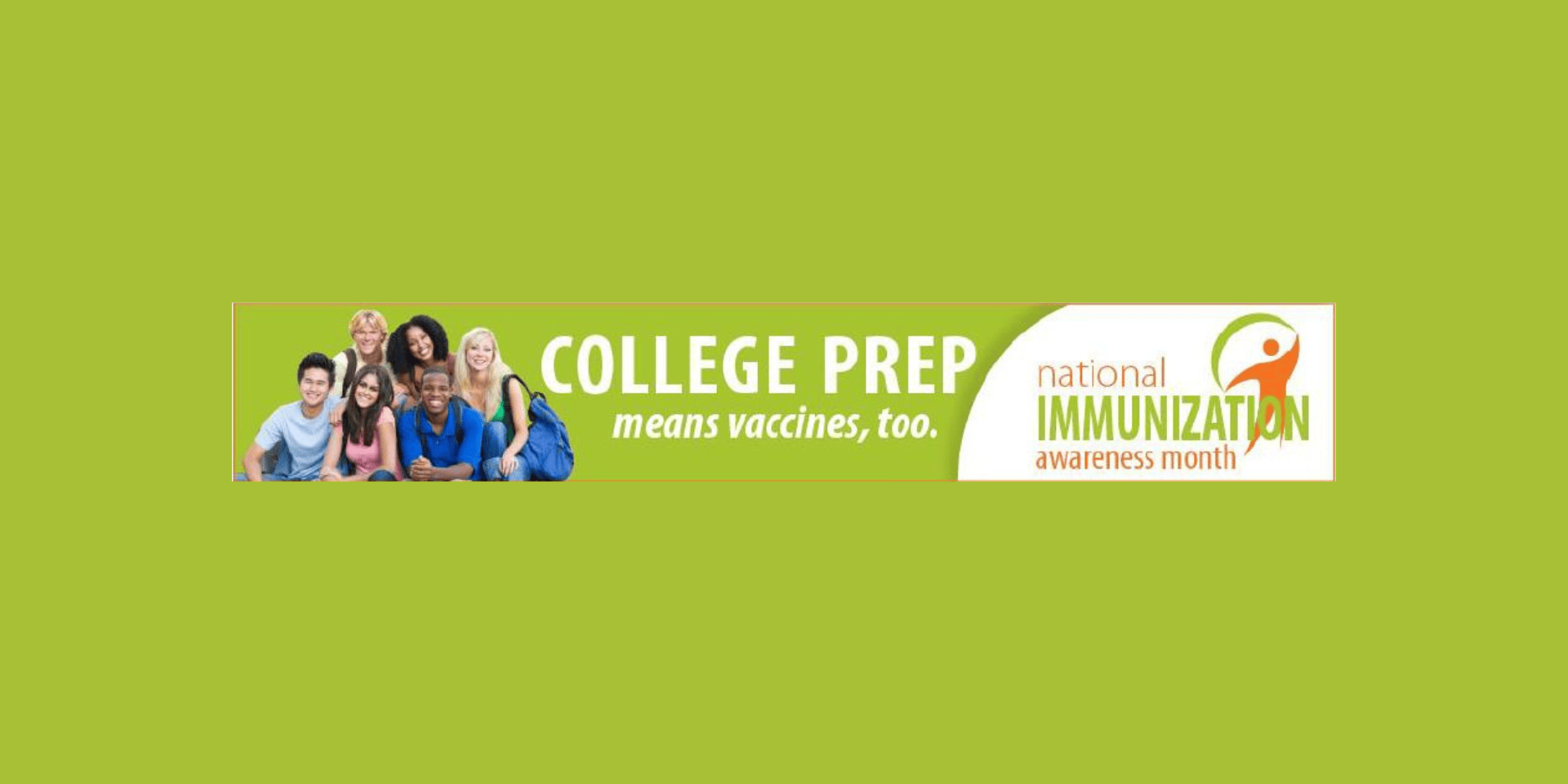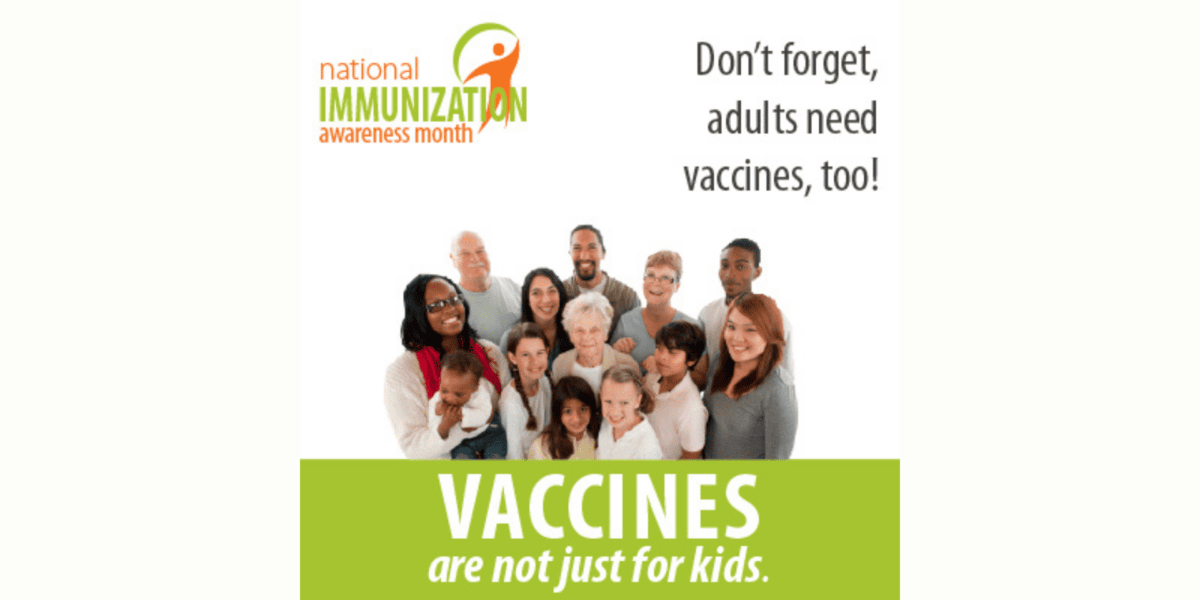
![]() Think you outgrow the need for vaccines when you graduate from high school? Not so. Every year, thousands of adults in the US suffer serious health problems, are hospitalized, or even die from diseases that could have been prevented by vaccinations.
Think you outgrow the need for vaccines when you graduate from high school? Not so. Every year, thousands of adults in the US suffer serious health problems, are hospitalized, or even die from diseases that could have been prevented by vaccinations.
To celebrate the importance of immunizations throughout the lifespan – and to help remind young adults that they need vaccines, too – the National Foundation for Infectious Diseases (NFID) is a proud partner of National Immunization Awareness Month (NIAM). NIAM is a perfect opportunity to make sure young adults are protected against a host of vaccine-preventable diseases like influenza, or flu, HPV, and meningococcal disease.
Human papillomavirus (HPV) is usually spread through sexual contact. Most new infections occur in teens and young adults in their early twenties. The best way to prevent the infection is to get the full three-dose vaccine series before exposure to the virus. HPV is the main cause of cervical cancer and can also cause genital warts as well as cancer of the vulva, vagina, penis, anus, mouth, and throat. Even if they show no symptoms and years have passed since they were first infected, infected individuals can still spread the virus. The HPV vaccine is recommended for both females and males beginning at age 11-12 years and for those not previously vaccinated, up to age 26 for females and age 21 for males.
Annual flu vaccination is recommended for everyone age 6 months and older and should be given as soon as the vaccine is available.
Meningococcal disease is a serious bacterial infection that is spread by close, direct contact with people who carry the bacteria in their nose or throat and is characterized by rapid onset. Most cases occur in previously healthy people, and a number of outbreaks have occurred on college campuses. The vaccine is typically required for college freshmen who will be living in dormitories. For college-bound students who received a meningococcal vaccine prior to their 16th birthday, a booster dose is recommended for maximum protection.
The specific vaccines recommended for young adults are determined by factors such as age, lifestyle, risk conditions, locations of travel, and previous vaccines. Healthcare providers are an excellent source of information about recommended vaccines.
For more information on which vaccines you or your college-bound student may need, visit adolescentvaccination.org.
Learn more about vaccines across the lifespan at the upcoming NFID Clinical Vaccinology Course scheduled for November 15-17, 2013 in Cambridge, MA. The CDC’s Dr. Amanda C. Cohn will present recent changes and future challenges in meningococcal vaccines and Dr. Lauri E. Markowitz of the CDC National Center for HIV, Viral Hepatitis, STD, and TB Prevention will present current data on implementation and safety issues associated with HPV vaccines.
To join the conversation, follow us on Twitter (@nfidvaccines) using the hashtag #NIAM13, like us on Facebook, and join the NFID Linkedin Group.
Related Posts

2014-15 Influenza Season: A Year to Remember
Like most children’s hospitals, Children’s of MN received a high number of infectious diseases cases this flu season and sadly, four children died in our hospital of influenza this year, also a new record…They were toddlers to teens, healthy and with chronic conditions, and mostly unvaccinated.

Protecting Mother and Baby: Two Important Vaccines Needed During Pregnancy
A special thank you to Laura E. Riley, MD, Director, Labor and Delivery at Massachusetts General Hospital, and Associate Professor of Obstetrics, Gynecology and Reproductive…

Some Things Shouldn’t Be Shared
The month of August has been designated as National Immunization Awareness Month. As a partnering organization, the National Foundation for Infectious Diseases (NFID) is helping…
